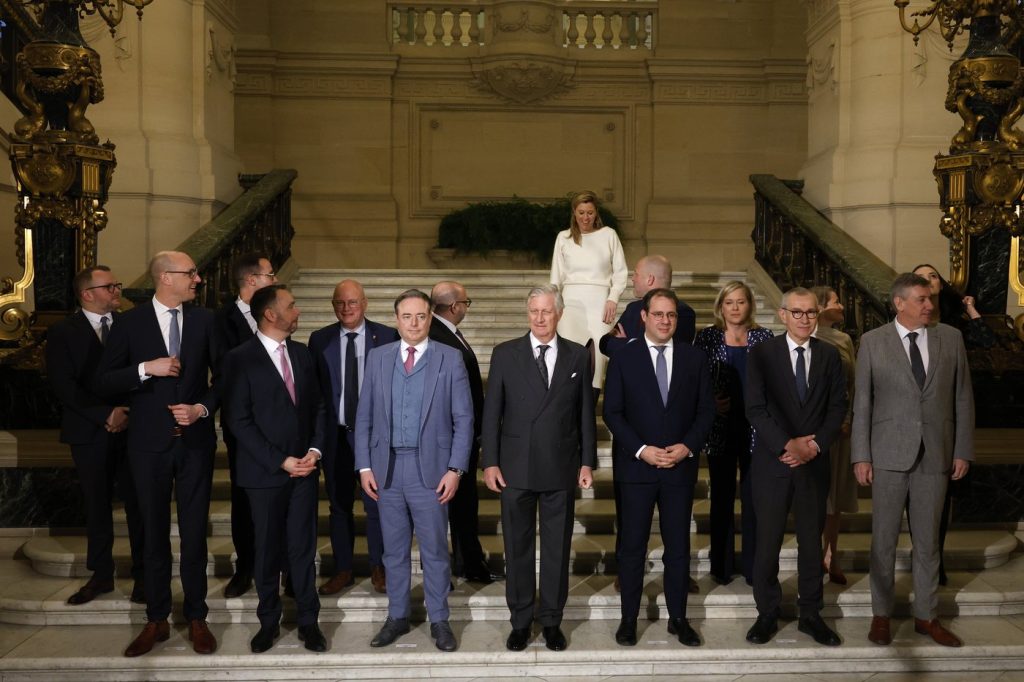BRUSSELS (AP) – Belgium has ushered in a new era with Bart De Wever assuming the role of Prime Minister. Historically, De Wever has been an advocate for the breakup of the nation, promoting increased autonomy for Flanders while diminishing the central state structures that support the broader Belgian identity. His swearing-in took place early Monday, during a ceremony at the Royal Palace where he addressed King Philippe with a mixture of respect and the reflection of a changing political landscape.
As De Wever took the oath, he stated, “I swear allegiance to the king,” a poignant reminder of the evolving dynamics in Belgium, particularly against the backdrop of rising demands for Flemish independence. This new government aims to rebalance the interests of the Dutch-speaking Flanders, which has a population of 6.7 million, alongside the francophone Wallonia, home to 3.7 million, and multilingual Brussels, which accommodates 1.2 million residents.
The ceremony was notable not only for its political significance but also for the linguistic representation, with De Wever and key ministers reciting the oath in both Dutch and French. Others among the 15-member cabinet team opted to deliver their oaths in their respective languages, showcasing the complex interplay of Belgium's linguistic divide. De Wever expressed a belief in the necessity of political engagement, stating, “You can … not take part in a government and wait until the system can be taken as a whole,” emphasizing the importance of representation and political negotiation.
The history of language and politics in Belgium has been tumultuous over the past century, marked by a transition from French dominance to a more balanced representation of both major linguistic communities. This shift followed the decline of Wallonia's industrial strength, contrasted with the economic growth of Flanders. De Wever, leading the Flemish nationalist New Flemish Alliance (N-VA), replaces Alexander De Croo, who has served as a caretaker Prime Minister since the elections of June 2024.
Upon taking office, De Wever outlined an ambitious agenda that includes fiscal accountability, social policy reforms, stricter migration controls, and a reversal of the nuclear phase-out policy. The coalition government, comprising five parties, reflects a significant shift in power dynamics, particularly as the socialist PS party, a long-time dominant force in Wallonia, lost considerable influence, paving the way for De Wever to forge a new alliance.
Despite immediate criticisms regarding the lack of gender balance within the cabinet, where De Wever appointed only three women out of 15 members, he expressed regret but indicated that it was not a central issue during coalition negotiations. The government’s coalition includes the PS socialists, the francophone MR liberals, the centrist CD&V, and the Engages party, which collectively hold a comfortable majority of 81 seats in the 150-member House.
The extended coalition negotiations highlighted the challenges in bridging diverse political ideologies and cultural backgrounds among the coalition parties. As Belgium faces a debt-restrained budget situation, with national debt exceeding 100% of the GDP, the new administration will need to navigate these critical financial challenges to ensure the welfare of its citizens while appeasing various party agendas.










